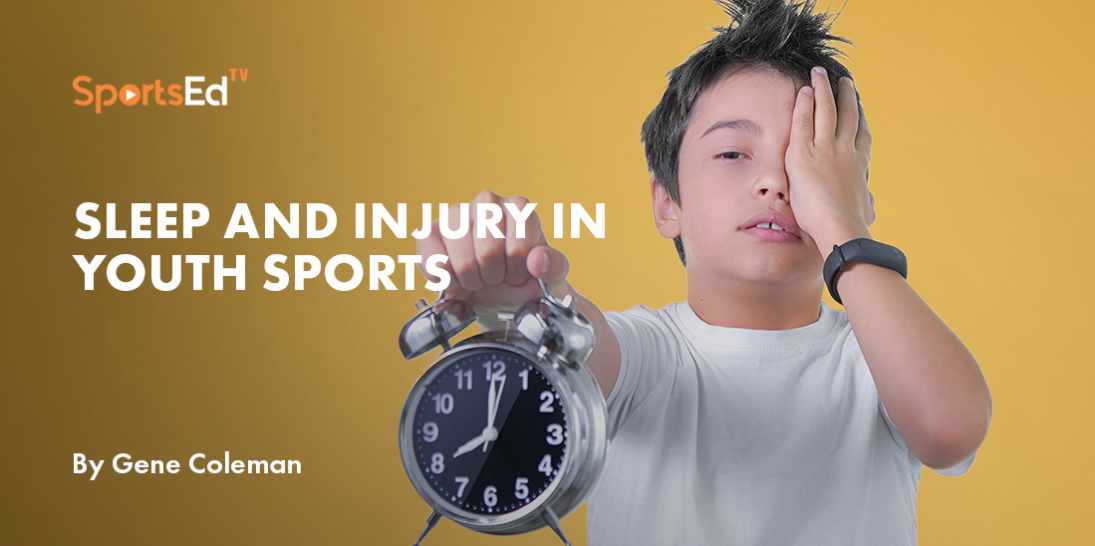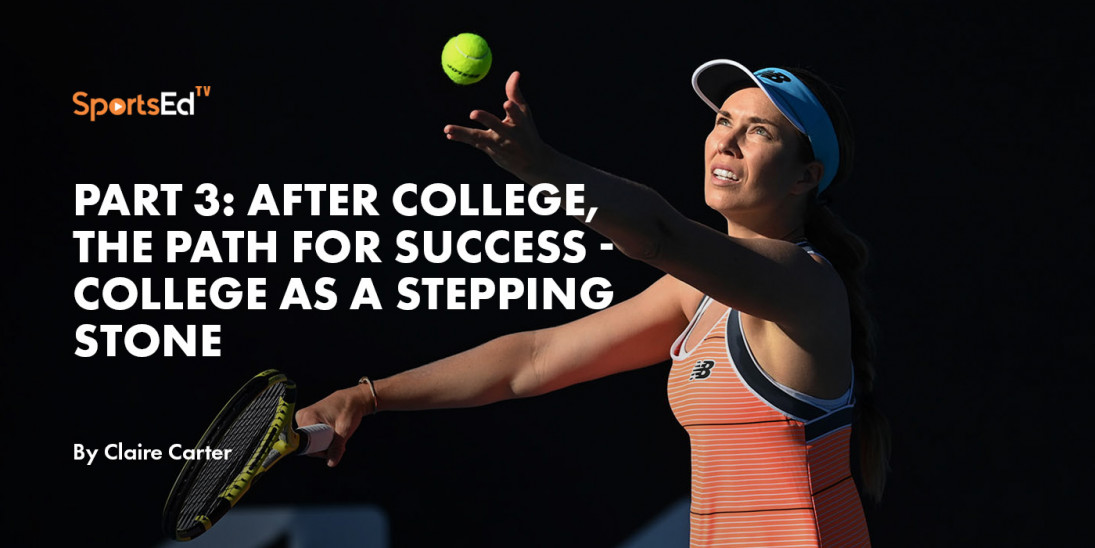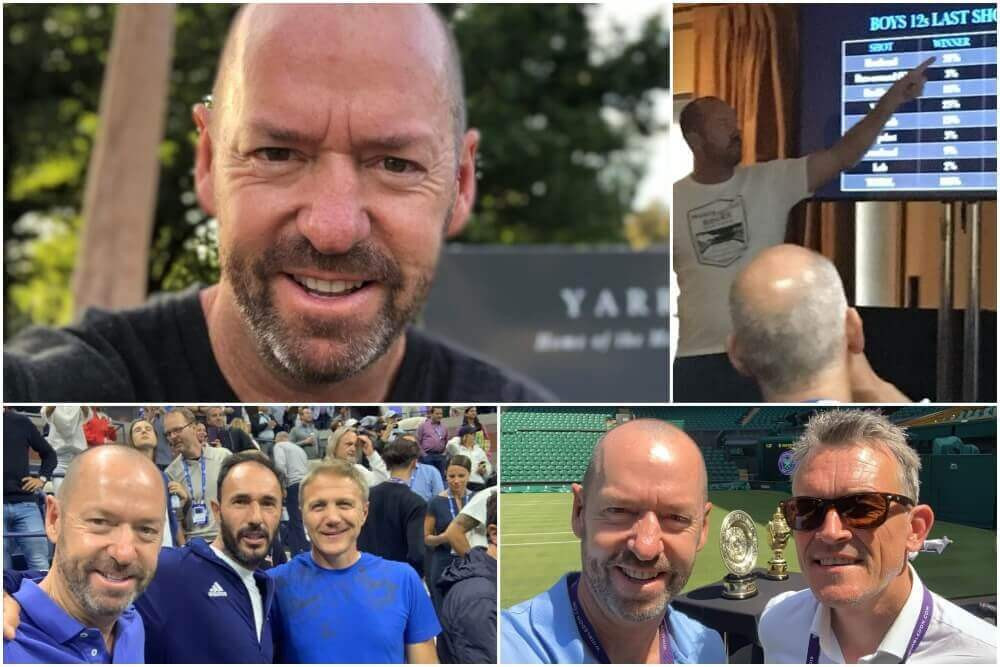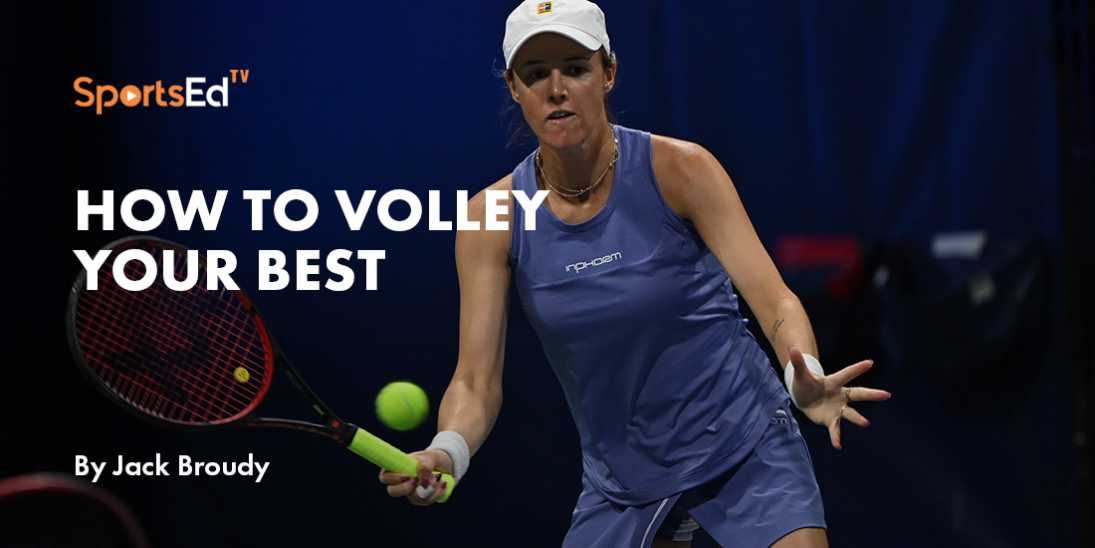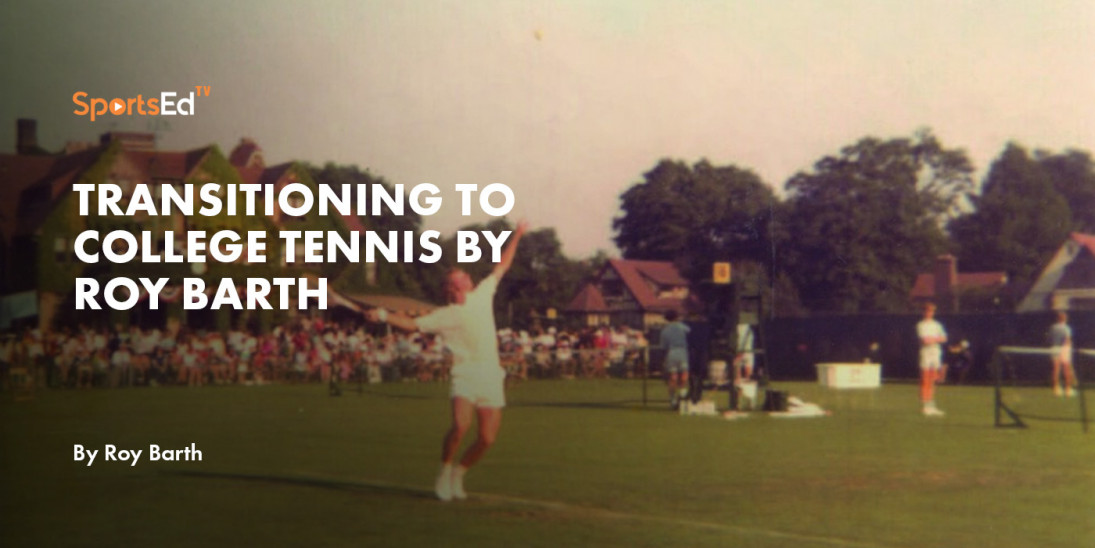Tennis
Welcome and thanks for visiting...

Master Your Mindset to Win More Tennis Matches: A Conversation With Emma Doyle - Part I
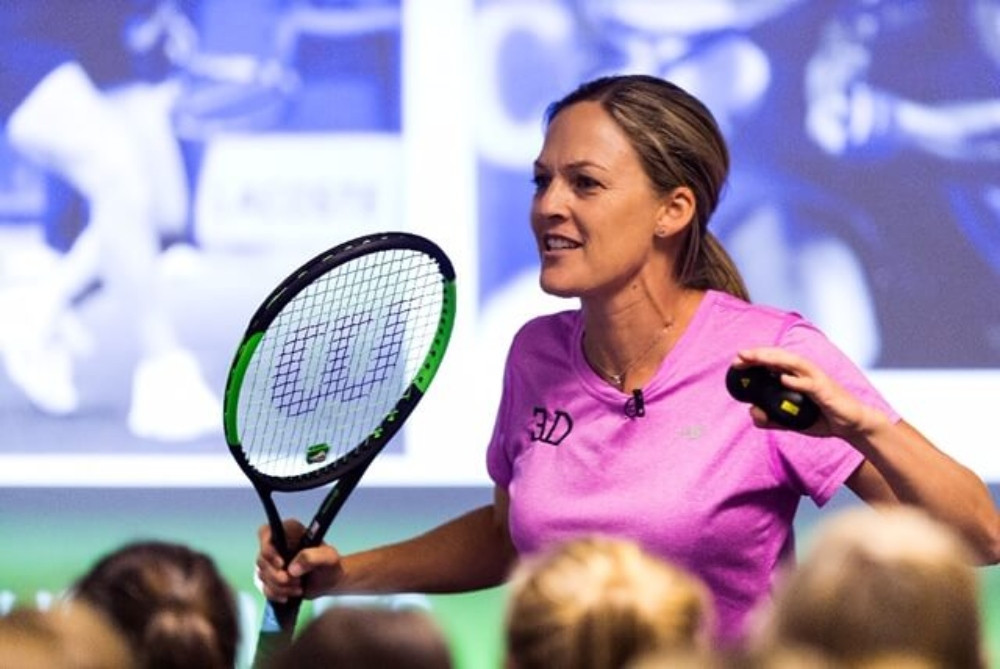
Emma Doyle joins SportsEdTV to discuss mental toughness/conditioning using the Neuro-Linguistic programming (NLP) approach. Doyle is known for inspiring and influencing players, coaches and teams by helping unleash human potential through the 'E' factors, energy, empathy and enjoyment. The E’ factors are the straight A's that Emma lives by to help others.
Emma Doyle joins SportsEdTV to discuss mental toughness/conditioning using the Neuro-Linguistic Programming (NLP) approach. Doyle is known for inspiring and influencing players, coaches and teams by helping unleash human potential through the 'E' factors, energy, empathy and enjoyment. The E’ factors are the straight A's that Emma lives by to help others.
Emma is a Neuro-Linguistic Programming (NLP) and Emotional Intelligence Practitioner with a strong background as a coach on the professional tennis tour. She is a Tennis Australia High-Performance Coach who is passionate about effective communication and coaching strategies that help people discover their inner coach.
NLP is a psychological approach to communication, personal development and psychotherapy. NLP's creators claim there is a connection between neurological processes (neuro), language (linguistic) and behavioral patterns learned through experience (programming), and that these can be changed to achieve specific goals in life.
SportsEdTV: Players get tight, including those in friendly competitions. Why do you think people can’t play as well in matches as they do in practice?
Emma: There are four main areas in tennis. Tactical, technical, physical and mindset. No matter what level you play, it is not always the person with the prettiest technique, or the best game plan, or the best physical fitness that wins, but almost always, is the person who is prepared to stay out on the court for that one extra ball, prepared to find a way and to tap into the depth.
For me, the mindset, no matter what level you play, sits at the top. It is what really governs how you play the rest of your game. Mental conditioning and the mindset are critical at all levels. I've seen every aspect of it, and I've experienced it myself. I've experienced choking, I've experienced it in golf and tennis. I didn't play professional tennis but played college tennis at Middle Tennessee State University and I've certainly had to experience the whole gamut myself of tapping into different resources to be able to bring out the best with my skills. I'm sure I beat plenty of players, especially in college, that put on paper, I probably shouldn't have beaten them.
SportsEdTV: Most coaches core system is, “The more matches you play, the better you are going to get.” What is your take on this coming from a NLPs perspective?
Emma: Talking about toughness and when coaches say, “Just keep playing more matches.” My little formula is Confidence = Time + Experience. Just playing more matches is half of the equation. It's very true that over time, there is no doubt you will put yourself in different situations and you can build up your resilience muscle, but the other piece of the equation is experience. For example, you could take the tools and the techniques and strategies that I'm about to share with you, with neurolinguistic programming, as an example, add that to your playing toolkit to be more confident and at a faster rate.
Everything is about how to help players improve faster and build their confidence layer by layer. It is about mentality stretching the comfort zone just by adding one layer at a time, is what can really impact that formula, Confidence = Time + Experience. Because confidence is energy, sometimes you have it, sometimes you don't. How do you slowly build it over time so that it stays with you more often, especially on the big points? It is with that little formula.
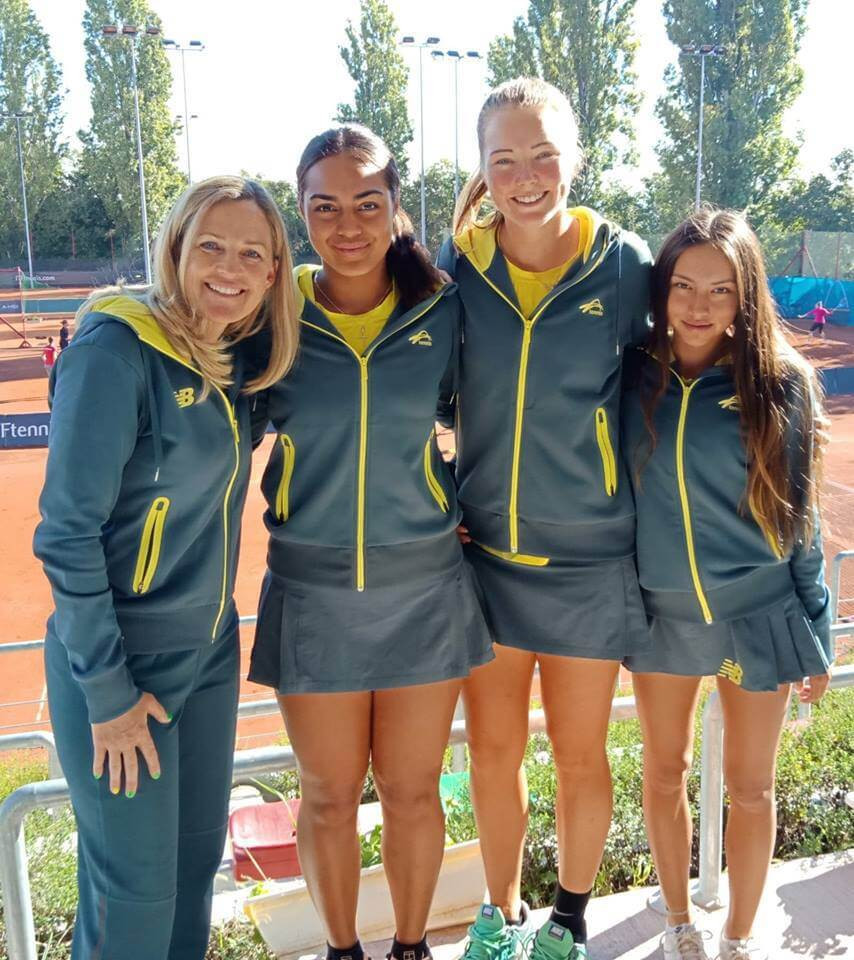 |
|
Doyle was the Australian Junior 2018 Fed Cup Team Captain, winning Asia-Oceania and finishing 6th in the World Championships. |
SportsEdTV: How hard is it to improve in the mental aspect?
Emma: It's like everything, like every other element of your game. If you don't practice it, you will lose it and that is something that always gets put at the bottom. Again, technical, tactical, physical and mindset, the mindset normally goes to the bottom and it's usually practiced in isolation. I'm a huge holistic coach, I don't believe anything should be done in isolation. Even if you're working on the “nike tick” on your serve, then let's embed some keywords and some sticky commands with the trophy position. The feeling of a stretch to really cement the neurological processes of that waiting, to help you drive up on your serve.
SportsEdTV: What is NLP?
Emma: NLP has been around since the 1970s, developed by Richard Bandler and John Grinder, they basically modeled behavior and then formed strategies to have a look at how you do what you do. A simple definition of NLP, is about how our thinking affects how we feel, and then, how our feelings affect how we behave. That is a very simplistic definition, but the neurological processes are how we code our world, and how we code our world is through the senses, the five senses, and that gives us a representational system. Visual, auditory, kinesthetic, olfactory (smell), and gustatory (taste), that is how we code our world. That is the neuro part of it, the linguistic is the language, but it is verbal and nonverbal communication. Obviously, our body language, our tone, our right of speech, our breath, is what happens. We program what impacts our behavior.
For example, let's go back to the serve, a lot of coaches say “Don't show me the waiter.” then on, “Serve like this”. That embeds a negative command, which is not very useful. The body is like, “I need to stop doing that” and you keep doing it. As a NLPer we would ask, what cue words and images resonate with the player. Can you balance a quarter on top of the racket?
That might be a different type of example there, that might find my body to feel differently about that position, just as an example. But there are plenty of examples, usually negative ones that they get embedded. It's so much harder to improve faster because everything that we say or what's said to us is coded and how we code really affects our performance.
What we really believe in, is focusing on the future. It's not just being positive for the sake of being positive. If you don't do anything well, then we're not going to provide you with any positives. We're going to just going to flip into a next time question. NEXT TIME you are in that same position, what would you do differently? That's definitely huge, we call that Future Based Thinking, moving from present to desired state.
SportsEdTV: There are subconscious and conscious elements just before a tournament, no one tries to go nervous. Players stay within their routine, they think it is just another day at the court. They listen to the same music and don't change anything. All of a sudden, they feel like there's something subconsciously just blocking them or just not letting them flow. Can you tell us a little bit more about the mind?
Emma: The best way to talk about it would just be that iceberg. Obviously, if we picture the iceberg, what we see as coaches and even as players is the conscious mind, which is the top of the iceberg, which is only actually operating at about 10 percent. As NLPers, we actually are talking directly to the subconscious. A lot of the work that we do is embedding commands or influencing what is happening at a much deeper level. One of our favorite presuppositions statements is the map, it is not the territory. I might ask you about a match and you might say “I played horribly.” You might notice that is just the surface structure. That is just what you are thinking because you can only remember the last two games of the match and you just lost. Potentially, what this player is saying (the map) is not actually what happened (the territory). We look at the whole picture, the unconscious and the subconscious, which includes what is going on, and what is really driving our behavior. The subconscious is so powerful, the unconscious subconscious, I use those terms interchangeably. It's driving 90 percent of what we do, and therefore, helping players with practical strategies brings solutions into their conscious awareness and encourages different ways to embrace those nerves.
I have a business partner in sports NLPs, this is one of his stories. He was working with a client and she was experiencing nerves as a black feeling in the pit of her stomach. Then, when he investigated further with more questions, it felt like there were Black Crowes in the pit of her stomach. What he did, is he asked to change the color, and then he shifted the crows from the pit of her stomach to the base of her spine. He then asked her to press her thumb on the base of his spine, and then she was able to say that they've changed color from black to white. He guided her with great questioning skills. It is almost like how do you flip what we call the sub modalities into somebody being able to embrace pressure, to be able to realize that the tennis match is a battle and how do we enjoy the battle of competition rather than every time we go out to play It's like “I should beat this girl.” “I know that somebody's going to be watching me.” “I know that my parents have spent this much money on my tennis.” We use a process like reframing or as you just heard in this story, the coach changed the submodalities (colors and location in the body) and it totally changed this girl's world, both on and off the court.

